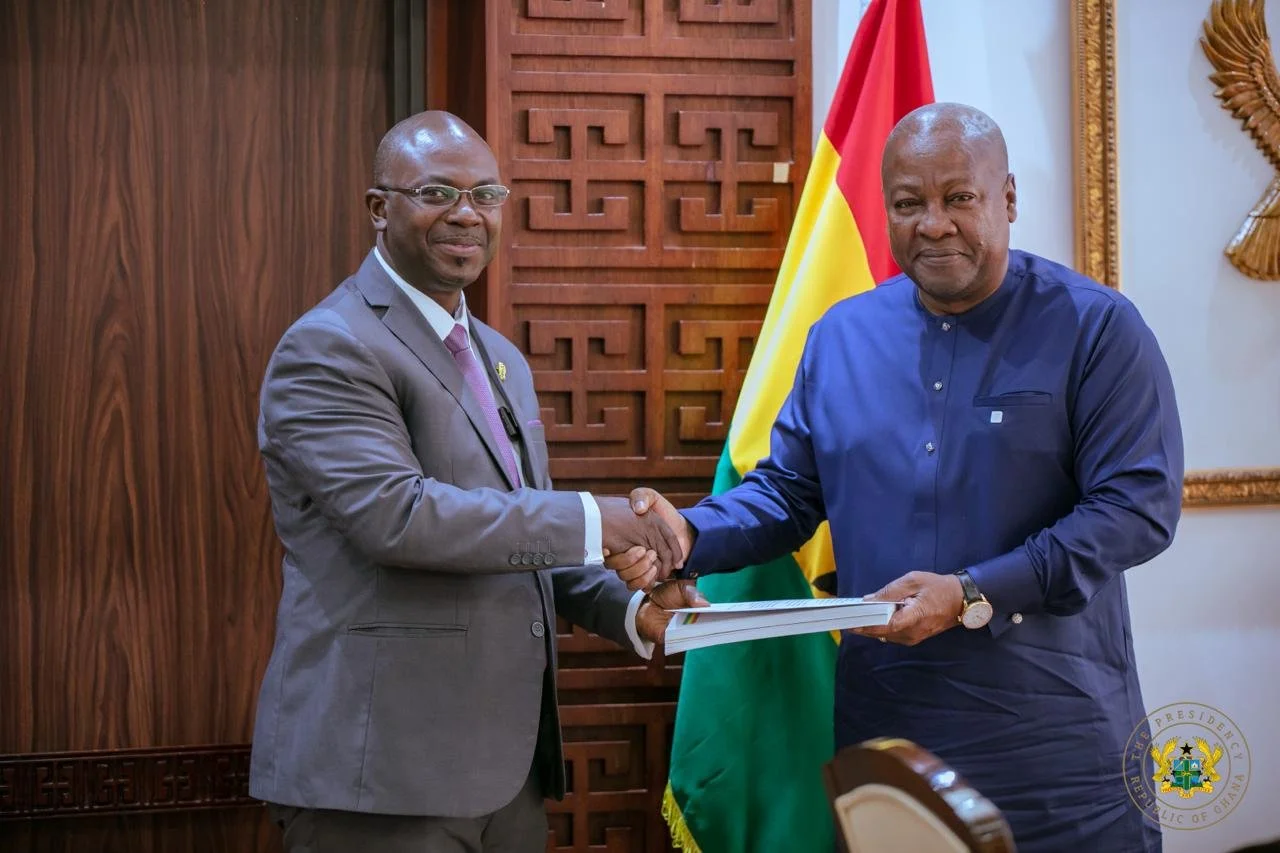Mahama’s $10 Billion “Big Push” Puts Oil Revenues to Work for National Infrastructure
President John Dramani Mahama has assured members of the Public Interest and Accountability Committee (PIAC) that oil revenues earmarked for his administration’s $10 billion “Big Push” infrastructure plan will be disbursed with full transparency and rigorous oversight. The pledge was made during a courtesy call by PIAC’s leadership team, led by Chairman Mr. Constantine K.M. Kudzedzi, who congratulated the President on his recent electoral victory and discussed ongoing matters relating to petroleum revenue utilization.
The President outlined that the Big Push will allocate $2 billion annually over the next five years toward priority infrastructure. This includes national road networks, major bridges, expanded education and health infrastructure, and targeted interventions in agriculture - such as the development of irrigation systems, farmer service centres, and agribusiness corridors. Designed to act as both a stimulus and a structural reset, the initiative positions petroleum and mineral royalties as the backbone of Ghana’s next phase of physical transformation.
The announcement comes at a pivotal moment. According to PIAC’s 2024 Annual Report, Ghana earned US $1.357 billion in petroleum receipts last year alone - a 28% increase from 2023 - bringing total oil revenue accrued since first oil in 2011 to more than US $11.2 billion. These figures set the fiscal foundation for the Big Push, which is widely seen as the most extensive oil-funded infrastructure agenda since the creation of the Ghana Infrastructure Investment Fund (GIIF).
But the Big Push also unfolds against a more sobering backdrop. Ghana currently faces a complex debt situation in its energy sector, with Independent Power Producers (IPPs) owed more than US $2.5 billion, creating liquidity constraints and raising questions about sectoral sustainability. In this context, the effective channeling of petroleum revenue toward productive infrastructure - rather than ad hoc bailouts - signals a strategic pivot.
President Mahama, in his remarks to PIAC, praised the Committee’s decade-long efforts to monitor the use of petroleum funds and reaffirmed the role of civic oversight in the Big Push’s success. PIAC, established under the Petroleum Revenue Management Act (PRMA) in 2011, has consistently advocated for prudent revenue application and published annual audits and sectoral evaluations. Its institutional credibility was a central reason for its inclusion in this early consultative engagement.
While some critics have expressed concern about the absorptive capacity of the public sector and whether $2 billion a year can be deployed without leakages, Mahama’s administration appears committed to tightening project monitoring mechanisms. The President emphasized that agricultural projects under the Big Push are not just budget lines - they are productivity engines." The initiative’s agricultural arm includes a planned expansion of irrigation schemes in the Northern, Upper East, and Savannah regions, all aimed at boosting national food security and rural incomes.
The symbolic weight of the announcement also resonates beyond Ghana’s borders. At a time when several African states are reviewing their oil-backed infrastructure strategies - amid global calls for fiscal restraint and energy transition - Ghana’s Big Push seeks to carve out a developmental pathway anchored in petroleum pragmatism rather than petrodollar excess. With commodity revenues increasingly under the spotlight, the nation’s ability to deliver durable infrastructure through well-managed oil funds may well serve as a continental benchmark.
For now, Mahama’s message to PIAC is clear: oil money will be spent - but it will be spent to last.


